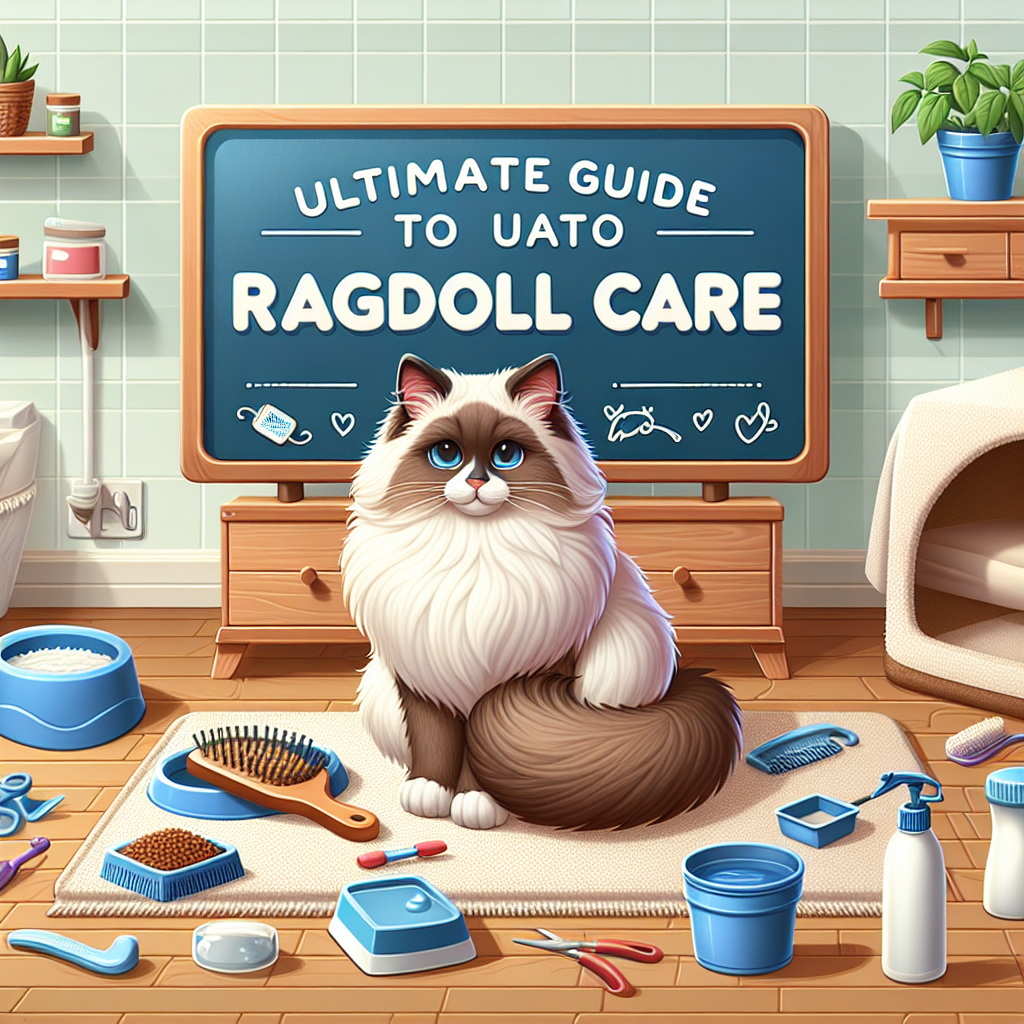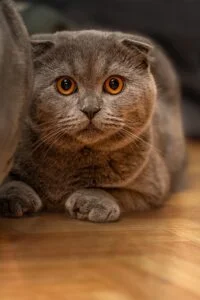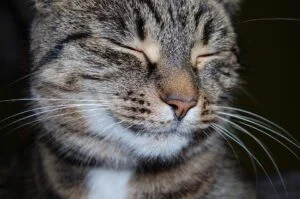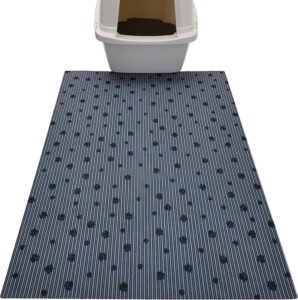
Ragdoll cats are a popular breed known for their gentle and affectionate nature. They are large, long-haired cats with striking blue eyes and a laid-back personality. Ragdolls are great companions for families and individuals alike, and they are known for their ability to adapt well to different living environments. In this ultimate guide to Ragdoll cat care, we will cover everything you need to know about caring for these beautiful felines.
1. History and Origins of Ragdoll Cats
Ragdoll cats were first bred in the 1960s by a woman named Ann Baker in California. The breed was created by crossing Persian, Birman, and Burmese cats to produce a large, semi-longhaired cat with a docile temperament. The name “Ragdoll” comes from the breed’s tendency to go limp and relaxed when picked up, much like a child’s ragdoll toy.
2. Physical Characteristics of Ragdoll Cats
Ragdolls are known for their large size, muscular build, and semi-long fur. They have striking blue eyes and a pointed coat pattern, similar to Siamese cats. Ragdolls come in a variety of colors, including seal, blue, chocolate, lilac, flame, cream, and tortoiseshell. Their fur is soft and silky and requires regular grooming to prevent matting and tangles.
3. Personality and Temperament of Ragdoll Cats
Ragdolls are famous for their gentle and affectionate nature. They are known for their love of cuddling and companionship, and they enjoy being close to their human family members. Ragdolls are social cats and thrive on attention and interaction. They are generally good with children and other pets and are not known for being aggressive or territorial.
4. Diet and Nutrition for Ragdoll Cats
Like all cats, Ragdolls require a balanced diet to stay healthy and happy. It is essential to feed your Ragdoll a high-quality cat food that is appropriate for their age, weight, and activity level. Ragdolls are prone to obesity, so it is crucial to monitor their food intake and provide them with plenty of exercise to keep them at a healthy weight.
5. Grooming and Hygiene for Ragdoll Cats
Ragdolls have a semi-long fur coat that requires regular grooming to prevent matting and tangles. It is recommended to brush your Ragdoll at least once a week to remove loose hair and prevent hairballs. Additionally, Ragdolls may need their nails trimmed regularly and their ears cleaned to prevent infections. It is also essential to provide your Ragdoll with regular dental care to prevent dental issues.
6. Exercise and Playtime for Ragdoll Cats
Despite their laid-back nature, Ragdolls still require regular exercise and playtime to stay healthy and happy. Provide your Ragdoll with plenty of interactive toys, scratching posts, and climbing structures to keep them entertained and engaged. Ragdolls enjoy playing fetch, chasing toys, and exploring their environment, so be sure to provide them with opportunities for physical and mental stimulation.
7. Health and Wellness for Ragdoll Cats
Ragdolls are generally healthy cats, but like all breeds, they are prone to certain health issues. Some common health problems that Ragdolls may face include hypertrophic cardiomyopathy (a heart condition), polycystic kidney disease, and bladder stones. It is essential to schedule regular veterinary check-ups for your Ragdoll and to stay up-to-date on vaccinations and preventative care.
8. Training and Socialization for Ragdoll Cats
Ragdolls are intelligent cats and can be trained to perform basic commands and tricks. They are also highly social animals and benefit from early socialization with people and other pets. It is essential to provide your Ragdoll with positive reinforcement training and plenty of opportunities for interaction to help them develop good behavior and social skills.
9. Housing and Environment for Ragdoll Cats
Ragdolls are indoor cats and should not be allowed to roam freely outdoors. It is essential to provide your Ragdoll with a safe and secure indoor environment that is free from hazards and potential dangers. Provide your Ragdoll with comfortable bedding, scratching posts, and plenty of vertical space to climb and explore. Additionally, ensure that your home is free from toxic plants, chemicals, and small objects that could be harmful if ingested.
10. Conclusion
In conclusion, Ragdoll cats are wonderful companions known for their gentle nature and affectionate personality. By providing your Ragdoll with proper care, nutrition, grooming, exercise, and socialization, you can ensure that they live a long, healthy, and happy life. Remember to consult with your veterinarian for specific care recommendations tailored to your Ragdoll’s individual needs. With the right care and attention, your Ragdoll cat will bring joy and companionship to your life for many years to come.





